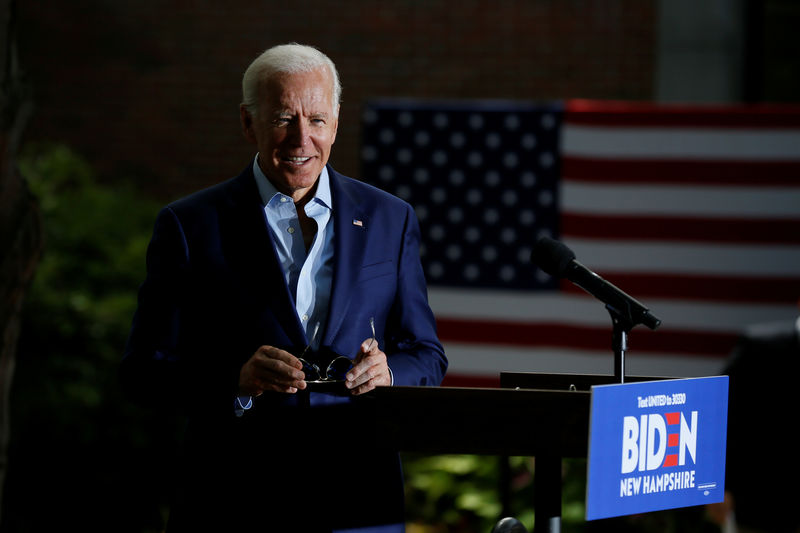By John Whitesides
WASHINGTON (Reuters) - Democrats will hold a single debate for 10 U.S. presidential contenders next month, leaving out 10 other candidates who did not meet the party's more stringent criteria for participation, the Democratic National Committee announced on Thursday.
The Sept. 12 showdown in Houston will be the first time the top Democratic contenders for 2020 have appeared on the same debate stage together. In June and July, the party held debates on back-to-back nights to make room for 20 candidates in the crowded field, splitting the top contenders over the two nights.
The formal announcement made official what had already become apparent: that many candidates would not be able to meet the heightened criteria for the September and October debates that require donations from at least 130,000 people and support of at least 2% in four DNC-approved polls.
The tougher rules will have the desired effect for the party, winnowing the field and giving a bigger spotlight to top-tier contenders former Vice President Joe Biden, and U.S. Senators Elizabeth Warren of Massachusetts, Bernie Sanders of Vermont and Kamala Harris of California.
Also qualifying for the debate next month are U.S. Senators Cory Booker of New Jersey and Amy Klobuchar of Minnesota, South Bend, Indiana, Mayor Pete Buttigieg; former U.S. Representative Beto O'Rourke of Texas; entrepreneur Andrew Yang of New York; and former Housing and Urban Development Secretary Julian Castro of Texas.
The Democrats are competing for the nomination to challenge Republican President Donald Trump for the White House in November 2020.
The candidates will be arranged on the stage by polling order. Biden, the highest-polling candidate, will be in the center, flanked by Sanders and Warren, giving the two progressive leaders an opportunity to team up against the more moderate front-runner.
Many of the candidates who were left out appeared in the earlier debates, and some came just short of making the big stage. If more than 10 had qualified, the debate would again have been split over two nights.
Billionaire activist Tom Steyer of California, who did not appear in the earlier debates, needed one more qualifying poll. U.S. Representative Tulsi Gabbard of Hawaii, who did participate in the first two debates, needed two more qualifying polls.
Without a chance to build support through the debates, six Democrats have dropped out of the race since July. U.S. Senator Kirsten Gillibrand of New York became the latest on Wednesday, shortly after it became apparent she would not qualify.
Several of the candidates left out of the debates have complained about the process. Gabbard told Fox News there was a lack of transparency, which she said could reduce trust among voters.
U.S. Representative Tim Ryan of Ohio, who participated in the first two debates, said they were "helpful" but his campaign would focus on taking his message to voters in states with early nominating contests.
"After participating in two DNC debates with the opportunity to speak for roughly 19 minutes, our campaign realizes there are more constructive ways for us to connect to voters," he said.

The candidates left out will have more time to qualify for the October debate, which has the same requirements. The Democrats plan at least 12 debates during the state-by-state nominating race, which begins in February with the first contest in Iowa.